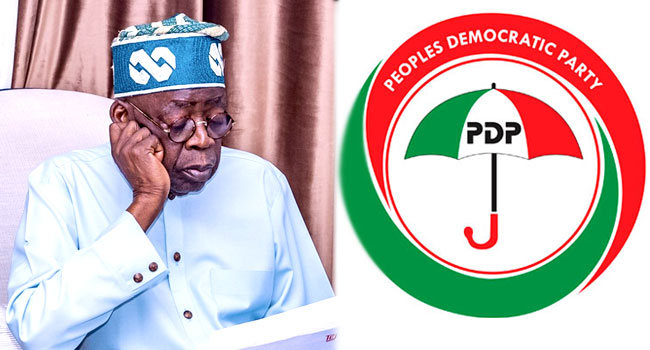Naira~For~Crude Sale To Dangote, Warri Refinery, Other Urgent Tasks Before New NNPCL Board
The restructuring of Nigeria’s state-owned oil giant, NNPCL, on Wednesday came as no surprise to industry watchers who have long advocated for sweeping reforms in both the upstream and downstream sectors.
These calls for change intensified following the enactment of the Petroleum Industry Act (PIA) in 2021 and the company’s transition into a commercial entity in July 2022.
After nearly two years under its new status, President Bola Tinubu dismissed the entire NNPCL Board on April 2, 2025, signaling a fresh direction for the company.
Presidential spokesman Bayo Onanuga justified the overhaul, emphasizing that the move was essential for improving operational efficiency, restoring investor confidence, enhancing local content, driving economic growth, and advancing gas commercialization and diversification.
While some observers believe the changes were long overdue, they welcome the action nonetheless. A significant shake-up was the removal of Mele Kyari as Group Chief Executive Officer. Kyari, a key figure from the previous administration of Muhammadu Buhari, had led NNPCL since July 7, 2019, before being relieved of his duties on April 2, 2025.
Kyari’s Exit and the New NNPCL Leadership
Kyari’s tenure at NNPCL spanned over three decades, and despite turning 60 in January 2025, he remained in office amid public calls for his removal. Unlike many other agency heads replaced soon after Tinubu assumed office, Kyari was retained alongside NAFDAC’s Mojisola Adeyeye and NDLEA’s Buba Marwa. However, the president has now taken decisive action, dismissing Kyari, NNPCL Board Chairman Pius Akinyelure, and other board members appointed in November 2023.
In their place, Tinubu has constituted a new 11-member Board, with Bashir Ojulari as Group CEO and Ahmadu Kida as Non-Executive Chairman. Other board members include Adedapo Segun, Bello Rabiu, Yusuf Usman, Babs Omotowa, Austin Avuru, David Ige, Henry Obih, Lydia Jafiya, and Aminu Ahmed.
Key Tasks for the New NNPCL Board
With a fresh team at the helm, expectations are high for swift action on critical industry challenges. Here are some of the pressing issues awaiting the new leadership:
1. Immediate Resumption of Naira-For-Crude Sales to Dangote Refinery & Others
Public sentiment strongly favors the reinstatement of Naira-based crude oil sales to Dangote Refinery and other local refiners, as mandated by the presidency in July 2024. Experts argue that resuming these transactions will ease pressure on the US dollar, stabilize petroleum product prices, and potentially reduce the cost of petrol.
Currently, petrol prices have surged from ₦860 per litre in March 2025 to around ₦1,000 in April 2025 following the breakdown of a six-month contract between NNPCL and Dangote Refinery. The dispute arose from pricing disagreements, with Dangote Refinery halting Naira-denominated fuel sales, citing an imbalance between its revenue and crude purchase obligations, which are pegged to the US dollar.
If negotiations succeed, Nigerians could see relief from costly, dollar-priced fuel imports.
2. Boost Oil & Gas Production
The new board is tasked with increasing Nigeria’s oil output, currently averaging 1.5 million barrels per day, in line with its OPEC quota. The Tinubu administration has set ambitious targets of reaching two million barrels per day by 2027 and three million by 2030.
Similarly, gas production is expected to rise from current levels to eight billion cubic feet daily by 2027 and 10 billion cubic feet by 2030.
3. Enhance Efficiency at Port Harcourt & Warri Refineries
Following their long-awaited revival in December 2024, the Port Harcourt and Warri refineries must now achieve stable output. The new board is expected to ensure that these refineries operate efficiently to support the domestic market and reduce dependence on imported fuel.
Together with private sector players like Dangote Refinery, a consistent supply from these facilities could bring much-needed price stability and energy security for Nigerians.
With these critical challenges ahead, the new NNPCL leadership has no time to waste in proving its effectiveness and delivering on key mandates.
4/3/2025, 7:41:36 AM
views 3388
20







